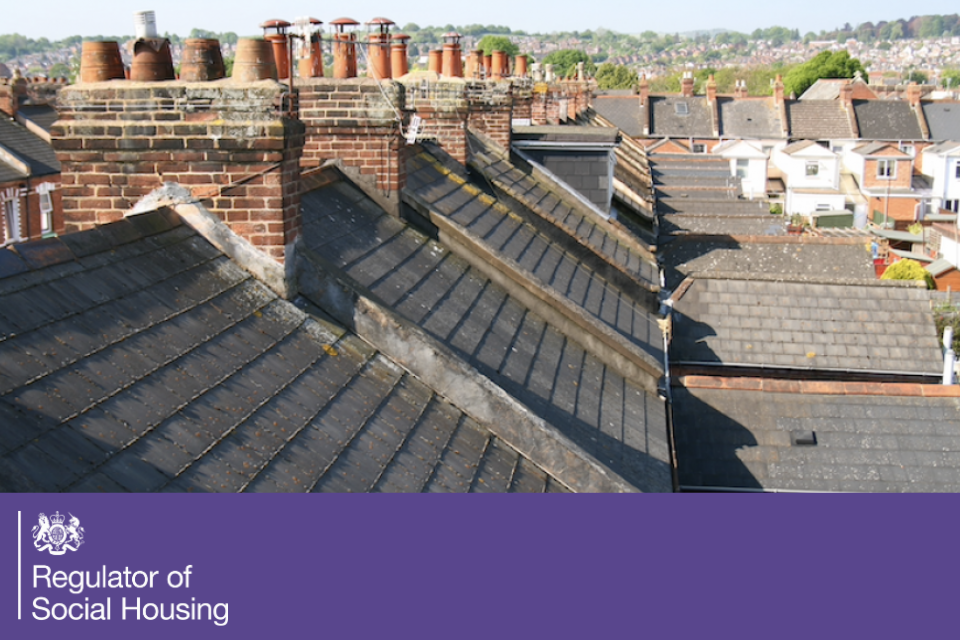The range of gradings published, which include both first consumer gradings and annual stability checks for governance and viability gradings, reflect the competing pressures facing the sector.
Notting Hill Genesis (NHG) had its governance rating downgraded to G3, after an inspection found serious regulatory concerns, with significant improvements needed to business planning and its control framework.
NHG’s risk management, internal controls and assurance framework is not robust enough to enable the board to identify and manage risks.
We found limited evidence of NHG’s board providing effective oversight of landlord health and safety compliance. While improvements are in progress, the range of issues that have arisen is challenging.
Although NHG’s V2 viability grading remains unchanged, it must manage significant financial risks carefully to ensure continued compliance in the short term.
Our inspection also found NHG failed to deliver outcomes in RSH’s new consumer standards, introduced on 1 April 2024. Our inspection found
-
A substantial backlog of overdue fire remediation actions.
-
A lack of data on whether legal requirements had been met in a large number of third party managed buildings.
-
A significant repairs backlog.
-
A lack of up-to-date accurate data, with only around half of homes having had a survey in the last five years.
Three other landlords, Southwark Council, Southampton Council and West Northamptonshire Council, have also been given a C3 grading by RSH, which means there are serious failings and they need to make significant improvements.
Following an inspection of the Southwark Council, RSH found
-
A failure to self-refer despite more than half of homes having no smoke alarms. More than half had also not had electrical condition test for over five years.
-
Almost 2,000 overdue fire safety remedial actions.
-
The last stock condition survey was undertaken in 2010, based on a sample of 10% of general needs and 20% of street properties.
-
A failure to allocate homes, especially empty homes, in a fair and transparent way that takes the needs of tenants and prospective tenants into account.
Following an inspection of Southampton City Council, RSH found
-
Nearly half (47%) of homes do not meet the Decent Homes Standard.
-
Poor performance for routine repairs, with long void turnaround times and long call waiting times – in part due to underinvestment in planned capital works over a prolonged period.
-
Weaknesses around asbestos safety.
-
Little evidence that tenants’ views are taken into account in decision making.
-
A lack of fairness, effectiveness and timeliness in complaints handling.
West Northamptonshire Council self-referred itself to us in September 2024 after identifying an issue with data quality and health and safety compliance. Our responsive engagement found
-
A lack of assurance over safety checks for fire, electrical, water, asbestos, lifts and smoke and carbon monoxide alarms.
-
Limited evidence that remedial actions were being completed within appropriate timescales.
Kate Dodsworth, Chief of Regulatory Engagement at RSH, said
Landlords must have robust systems to identify and manage risk. We assess providers’ governance for those landlords within our economic remit.
We also expect all landlords to take the health and safety of tenants in their homes extremely seriously. They must listen to tenants’ concerns, acting swiftly to resolve any issues and this cannot be achieved without accurate, up-to-date data.
We are engaging intensively with the landlords in each of these cases as they work to put things right for tenants. A self-referral is a positive sign that a landlord is taking accountability and understands their responsibilities.”
The London Borough of Lambeth, Medway Council, East Midlands Housing Group Limited, Chesterfield Borough Council and Stevenage Borough Council received C2 gradings following an inspection.
RSH also published regulatory judgements for a further 25 landlords from the stability check programme, with all but two retaining their previous governance and viability gradings. Stability checks are a yearly exercise where we look at the financial information landlords have submitted to us (including their most recent business plan and annual accounts) and consider whether their current viability grade is consistent with this.
Notes to Editors
-
RSH carries out stability checks on all housing associations, and other private registered providers, who own 1,000 homes or more. The stability checks are a yearly exercise. We look at the financial information landlords have submitted to us (including their most recent business plan and annual accounts) and consider if there are any risks which might result in a change to their financial viability or governance gradings. The checks do not include local authorities because our governance and financial viability standard does not apply to them.
-
On 1 April 2024 RSH introduced new consumer standards for social housing landlords, designed to drive long-term improvements in the sector. It also began a programme of inspections for all large social landlords (those with over 1,000 homes) over a four-year cycle. The changes are a result of the Social Housing Regulation Act 2023 and include stronger powers to hold landlords to account. More information about RSH’s approach is available in its document Reshaping Consumer Regulation.
-
More information about RSH’s responsive engagement, programmed inspections and consumer gradings is also available on its website.
-
RSH promotes a viable, efficient and well-governed social housing sector able to deliver more and better social homes. It does this by setting standards and carrying out robust regulation focusing on driving improvement in social landlords, including local authorities, and ensuring that housing associations are well-governed, financially viable and offer value for money. It takes appropriate action if the outcomes of the standards are not being delivered.
For general enquiries email [email protected]. For media enquiries please see our Media Enquiries page.








